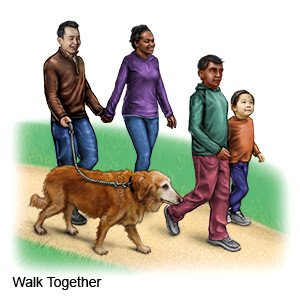Back Pain
Medically reviewed by Drugs.com. Last updated on Apr 6, 2025.
AMBULATORY CARE:
Back pain
is common. You may have back pain and muscle spasms. You may feel sore or stiff on one or both sides of your back. The pain may spread to your lower body. Conditions that affect the spine, joints, or muscles can cause back pain. These may include arthritis, spinal stenosis (narrowing of the spinal column), muscle tension, or breakdown of the spinal discs.
Call your local emergency number (911 in the US) if:
- You have severe back pain with chest pain.
- You cannot control your urine or bowel movements.
- Your pain becomes so severe that you cannot walk.
Seek care immediately if:
- You have pain, numbness, or weakness in one or both legs.
- You have severe back pain, nausea, and vomiting.
- You have severe back pain that spreads to your side or genital area.
Drugs used to treat this and similar conditions
Qutenza
Qutenza patches are used to treat neuropathic pain associated with postherpetic neuralgia and ...
L-Carnitine
L-Carnitine is used for carnitine deficiency, peripheral neuropathy
Ozempic
Learn about Ozempic (semaglutide) for type 2 diabetes treatment, weight management, cardiovascular ...
Carnitor
Carnitor is used for carnitine deficiency, peripheral neuropathy
Carnitor SF
Carnitor SF is used for carnitine deficiency, peripheral neuropathy
Phenytoin
Phenytoin is an anti-epileptic drug, also called an anticonvulsant. Learn about side effects ...
Capsaicin topical
Capsaicin information from Drugs.com, includes Capsaicin side effects, interactions and indications.
Carbamazepine
Carbamazepine is used to treat epileptic seizures and nerve pain such as trigeminal neuralgia ...
Levocarnitine
Levocarnitine systemic is used for carnitine deficiency, peripheral neuropathy
Pregabalin
Pregabalin may be used to treat certain types of pain and used in combination with other ...
Treatment options
The following list of medications are related to or used in the treatment of this condition.
Call your doctor if:
- You have back pain that does not get better with rest and pain medicine.
- You have a fever.
- You have pain that worsens when you are on your back or when you rest.
- You have pain that worsens when you cough or sneeze.
- You lose weight without trying.
- You have questions or concerns about your condition or care.
Medicines:
You may need any of the following:
- NSAIDs help decrease swelling and pain or fever. This medicine is available with or without a doctor's order. NSAIDs can cause stomach bleeding or kidney problems in certain people. If you take blood thinner medicine, always ask your healthcare provider if NSAIDs are safe for you. Always read the medicine label and follow directions.
- Acetaminophen decreases pain and fever. It is available without a doctor's order. Ask how much to take and how often to take it. Follow directions. Read the labels of all other medicines you are using to see if they also contain acetaminophen, or ask your doctor or pharmacist. Acetaminophen can cause liver damage if not taken correctly.
- Muscle relaxers help decrease muscle spasms and back pain.
- Take your medicine as directed. Contact your healthcare provider if you think your medicine is not helping or if you have side effects. Tell your provider if you are allergic to any medicine. Keep a list of the medicines, vitamins, and herbs you take. Include the amounts, and when and why you take them. Bring the list or the pill bottles to follow-up visits. Carry your medicine list with you in case of an emergency.
Manage your back pain:
- Apply ice on your back for 15 to 20 minutes every hour or as directed. Use an ice pack, or put crushed ice in a plastic bag. Cover it with a towel before you apply it to your skin. Ice helps prevent tissue damage and decreases pain.
- Apply heat on your back for 20 to 30 minutes every 2 hours for as many days as directed. Heat helps decrease pain and muscle spasms.
- Stay active as much as you can without causing more pain. Bed rest could make your back pain worse. Avoid heavy lifting until your pain is gone.

- Go to physical therapy as directed. A physical therapist can teach you exercises to help improve movement and strength, and to decrease pain.
Follow up with your doctor in 2 weeks, or as directed:
You might need to see a specialist. Write down your questions so you remember to ask them during your visits.
© Copyright Merative 2025 Information is for End User's use only and may not be sold, redistributed or otherwise used for commercial purposes.
The above information is an educational aid only. It is not intended as medical advice for individual conditions or treatments. Talk to your doctor, nurse or pharmacist before following any medical regimen to see if it is safe and effective for you.
Learn more about Back Pain
- Pain Management: Types of Pain and Treatment Options
- Should you mix muscle relaxants with alcohol?
- Top 9 Things You Must Know About Naproxen
- Tramadol - Top 8 Things You Need to Know
- What are the risks of mixing pain medications and alcohol?
Treatment options
Care guides
- Acute Low Back Pain
- Back Pain
- Chronic Abdominal Pain
- Chronic Back Pain
- Chronic Neck Pain
- Chronic Pain
- Fibromyalgia
Symptoms and treatments
Medicine.com guides (external)
Further information
Always consult your healthcare provider to ensure the information displayed on this page applies to your personal circumstances.
